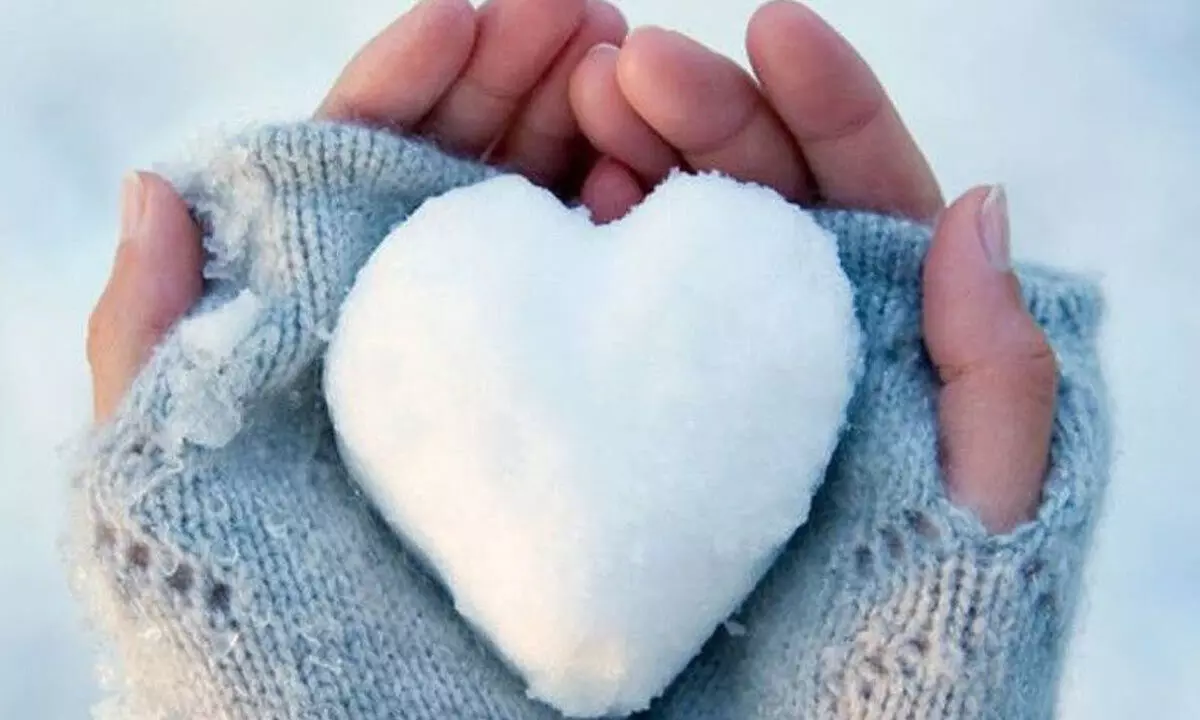Effects of extreme weather conditions on the heart

Representational image
Heat stress can lead to severe health effects due to acute exacerbation of existing illnesses.
Bengaluru: Heat stress can lead to severe health effects due to acute exacerbation of existing illnesses. Heat exposure also places an increased strain on the heart and can lead to heat exhaustion or heat stroke if the internal body temperature is not adequately regulated by the cardiovascular system. The cold causes blood vessels to contract, which can raise blood pressure, increasing the risk of heart attack and stroke. Angina, or chest pain due to coronary heart disease, can also worsen in winter when coronary arteries constrict in the cold.
Speaking to The Hans India, Dr. Divya Marina Fernandes, Consultant - Heart Failure Specialist and Interventional Cardiologist, Aster RV Hospital says, "Excessive heat can cause increased sweating leading to water loss from the body and dehydration. Due to this, the volume of plasma reduces, the concentration of blood components (red blood cells) rises and if accompanied by high cholesterol, can potentially lead to blockages in the heart vessels causing a heart attack. Heat, especially heat waves can also increase the blood pressure, cause faster and irregular heartbeats (arrhythmias) which can cause strokes and heart attacks. The amount of oxygen needed for the heart is higher leading to symptoms of chest pain, breathlessness and loss of consciousness."
It usually affects elderly above the age of 65 years. As we age, the exercise capacity of the heart is reduced, pre-existing diseases like high cholesterol, hypertension and diabetes are also present in the majority of them. This in turn increases the risk. Most healthy people tolerate weather changes well.
"People with a previously diagnosed heart condition, uncontrolled diabetes, high cholesterol or hypertension may not readily accommodate to harsh weather. Also, people who are on medications to remove excessive fluid from the body (diuretics) are at a higher risk as they can be exposed to dehydration. Go slow. Do not exercise outdoors in extreme weather conditions. If you exercise, drink adequate fluids and keep yourself hydrated. Avoid smoking and excessive alcohol intake. Regular bath and shower or an ice pack if needed. Eat small and light meals," added Dr Divya Fernandes. Extreme cold weather can also put pressure on your heart. The blood vessels respond to severe cold by becoming narrower (constriction). This increases blood pressure and decreases blood circulation. Cold weather can increase your heart rate leading to an increase in oxygen demand. If there is an associated infection due to the cold temperature, it puts an additional strain on the heart. Risk factors - are similar to heat wave risk factors itself. 'Wear multiple layers of warm clothing to maintain your temperature. Avoid outdoor exercise. Avoid high fat food, avoid smoking. Consume hot soups and warm meals.
Stay active indoors. If you have symptoms of chest pain, giddiness, breathlessness or fast heart rate (palpitations), please consult a doctor. You may not be having a heart attack but there might be symptoms of heat or cold intolerance which can be treated on time," concludes Dr Divya Fernandes.










